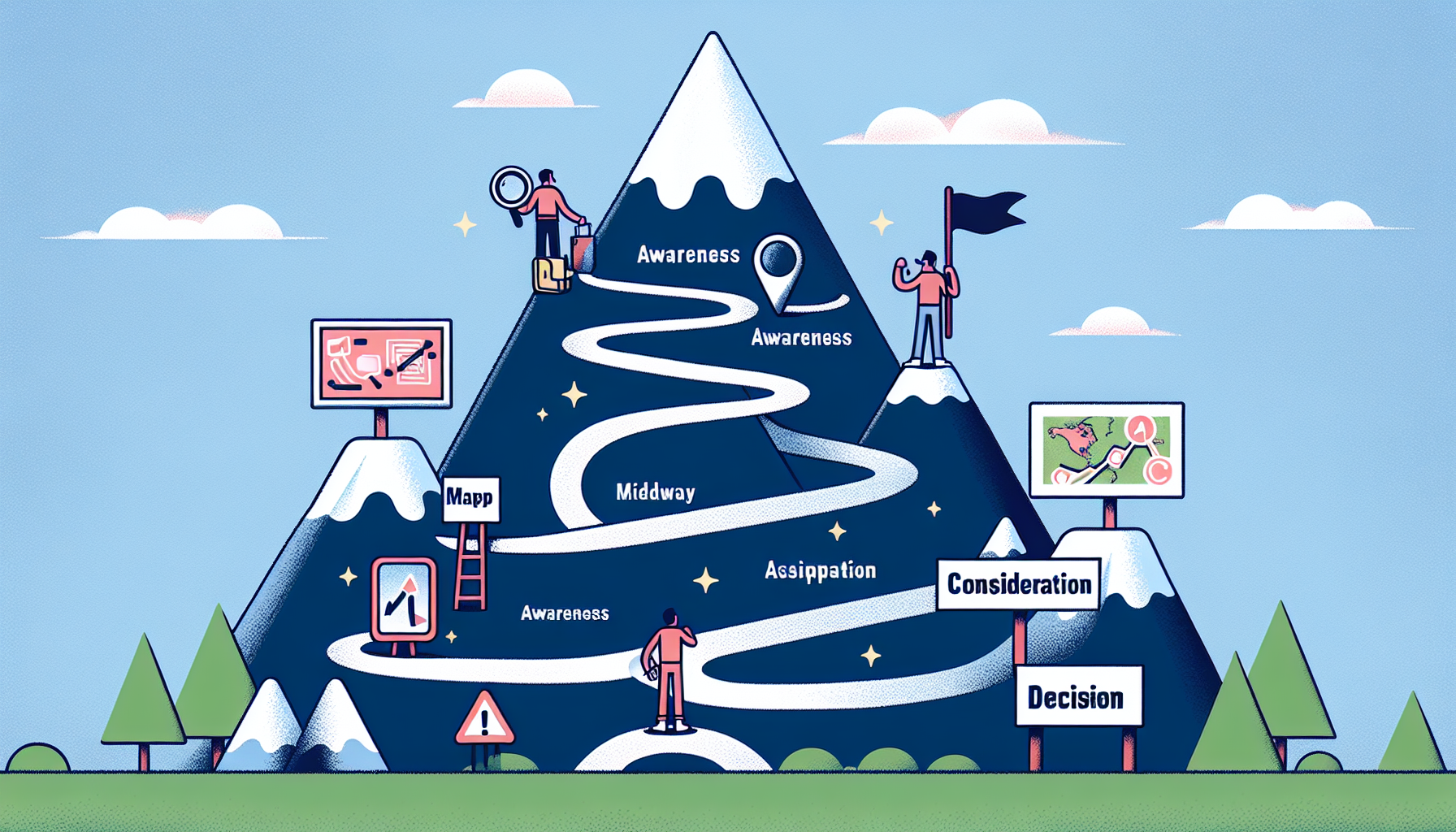Content marketing is about creating and sharing valuable content to attract and engage your target audience. This strategy can help establish your brand, drive traffic, and generate leads. In this article, we’ll explore effective content marketing strategies for 2024 to help you achieve your business goals.
Key Takeaways
-
Content marketing is essential for engaging and retaining an audience by creating and distributing relevant, valuable content across various formats such as blogs, videos, social media posts, and infographics.
-
An effective content marketing strategy involves understanding your target audience, setting SMART goals, choosing appropriate content formats and channels, creating a content calendar, and measuring and analyzing results.
-
Integrating SEO with content marketing, leveraging social media for content distribution, and avoiding common mistakes like over-promotion and inconsistent posting can enhance the visibility, reach, and impact of your content marketing efforts.
0 Introduction
Imagine wielding the power to:
-
Captivate your target audience
-
Furnish them with knowledge
-
Guide them through their customer journey
-
Establish your brand as a beacon of thought leadership
This is the heart of content marketing in the modern digital epoch. With a well-orchestrated content marketing strategy, every blog post, video, and social media update becomes a stepping stone towards your business objectives. A solid content strategy ensures that your marketing efforts are aligned and effective.
Set forth on this journey and discover how to harness the full potential of content marketing to educate, engage, and enchant your audience in a way that not only speaks volumes about your brand but also sets the stage for enduring success.
Understanding Content Marketing

Content marketing stands as a pillar of the digital marketing universe, with its significance magnified by the increasing demand for meaningful and engaging online interactions. At its core, content marketing is not merely a tactic—it’s a comprehensive approach that weaves through the fabric of the consumer’s digital experience. When businesses explore the essence, pivotal role in growth, and rich history of content marketing, they can acquire insights that help them formulate deeply resonating strategies.
Having a well-devised content marketing strategy can help brands convert casual browsers into faithful customers, create enduring engagement from transient interest, and ultimately lead to a successful content marketing campaign. By implementing a successful content marketing strategy, brands can ensure long-term growth and customer loyalty.
What is Content Marketing?
Content marketing is the art of engaging and retaining an audience through the consistent creation and distribution of relevant, valuable content. It’s about telling your brand’s story across a myriad of platforms and formats, including:
-
insightful blog posts
-
captivating video content
-
engaging social media posts
-
informative podcasts
-
visually appealing infographics
This strategic approach to marketing focuses on establishing a dialogue with your audience, providing solutions to their needs and challenges, and ultimately forming a connection that transcends the transactional nature of business.
Content marketing, be it in the form of inspirational podcasts or educational infographics, involves creating a narrative that connects with your audience throughout their journey.
Why is Content Marketing Important?
In a digital world brimming with information, content marketing emerges as a beacon that guides consumers to your brand. It’s a powerful driver of organic traffic, bolstering SEO efforts and establishing your brand as an authority in its field. By generating leads in a cost-effective manner, content marketing eclipses traditional advertising methods, providing a more nuanced and engaging way for consumers to connect with your brand.
Content marketing is centered around:
-
Building a trustworthy and credible foundation
-
Empowering consumers to make informed decisions
-
Educating and informing
-
Cultivating a loyal community around your brand.
History of Content Marketing
Content marketing is not a novel concept; its roots stretch back centuries, evolving from early print publications to the complex digital strategies of today. Consider Benjamin Franklin’s “Poor Richard’s Almanack,” a masterstroke of early content marketing that entertained and informed, fostering loyalty and promoting his printing business.
Similarly, John Deere’s “The Furrow” magazine provided farmers with invaluable insights, subtly positioning the company as an industry leader. These historical examples embody the timeless essence of content marketing: delivering value to the audience while achieving business objectives, a formula as relevant today as it was in yesteryears.
Types of Content Marketing

Content marketing is a multifaceted discipline that encompasses a diverse range of content types and formats, each with its unique strengths and capabilities. From the immersive storytelling of blog content to the visual allure of infographics and the intimate connection fostered by podcasts, content marketing offers businesses a spectrum of tools to engage their audience. Understanding the array of available content marketing types allows brands to strategically select those that best fit their goals, audience preferences, and intended message.
This exploration will unfold the unique categories of content marketing and elucidate their utilization for captivating and conversion purposes.
Blog Content
Blog content serves as a cornerstone of content marketing, offering brands a platform to share insights, tell stories, and provide value to readers. It’s an avenue for expressing brand personality, showcasing expertise, and addressing the interests and pain points of your audience. Through a well-crafted blog, companies can significantly enhance their SEO, attract organic traffic, and position themselves as thought leaders in their industry.
Engaging blog posts that resonate with readers can lead to increased leads, conversions, and customer loyalty, solidifying the blog’s role as an indispensable content marketing tool.
Video Content
The dynamic nature of video content makes it an increasingly popular choice in the content marketing arsenal. With the ability to convey emotion, demonstrate products, and deliver complex messages in an easily digestible format, video marketing has the power to connect with audiences on a deeper level.
From tutorials to testimonials and live streams, video content provides a versatile medium for brands to engage viewers, boost conversions, and enhance their online presence. As it continues to rise in popularity, video content marketing stands as a testament to the adage that seeing is believing.
Social Media Posts
Social media has revolutionized the way brands interact with their audiences, offering a plethora of platforms for content distribution and community building. Through creative social media posts, businesses can showcase their personality, share valuable content, and engage in real-time conversations with their followers.
Whether it’s through compelling visuals, thought-provoking articles, or interactive polls, social media marketing enables brands to develop a loyal following and amplify their message across the digital landscape. By leveraging the unique strengths of each platform, companies can create a social media presence that resonates with their target audience and drives meaningful engagement.
Infographics
Infographics are a powerful tool in the content marketer’s kit, distilling complex information into visually engaging, easily shareable graphics. By presenting data and insights in an accessible format, infographics make it simple for audiences to grasp and retain key messages. They are particularly effective during the awareness stage of the buyer’s journey, where capturing attention and conveying brand expertise is paramount.
With their potential for virality, infographics can significantly enhance a brand’s reach and memorability, making them a valuable asset for any content marketing strategy.
Podcasts
Podcasts offer a unique content marketing avenue, providing an auditory platform for storytelling, interviews, and industry discussions. They cater to a growing audience that values the convenience of consuming content on-the-go, often leading to high engagement and retention rates. With podcasts, brands have the opportunity to delve into topics at length, establish authority, and build a community of dedicated listeners.
Successful podcasts can significantly boost brand awareness and create a loyal fan base, proving that in the realm of content marketing, the power of voice should not be underestimated.
How Content Marketing Works

Content marketing follows a strategic journey, guiding the audience from initial awareness to informed decision-making. The stages of content marketing are:
-
Awareness: Spark interest and capture the attention of your audience.
-
Consideration: Nurture leads and provide valuable information to help them make informed decisions.
-
Decision: Drive conversions by providing compelling content that convinces your audience to take action.
By understanding these stages, marketers can customize their content to cater to the changing needs of their audience and achieve their marketing goals.
Aligning content with these stages allows businesses to ensure that their marketing efforts are not only noticed but also impactful, building enduring relationships with their customers.
Awareness Stage
The awareness stage marks the beginning of the buyer’s journey, where potential customers first encounter your brand. It’s a critical phase where content should focus on educating and informing rather than selling, addressing broad pain points and answering common questions. At this stage, engaging blog posts, informative articles, and eye-catching infographics are ideal for drawing in your audience.
By providing valuable content that resonates with the needs and interests of your target audience, you can increase brand awareness and lay the foundation for a strong relationship with your customers.
Consideration Stage
As the buyer progresses to the consideration stage, content marketing shifts focus to address more specific problems and present tailored solutions. This is the time to demonstrate how your products or services can resolve the challenges your audience faces. In-depth articles, case studies, and how-to guides become invaluable resources, helping prospects evaluate their options and recognize the unique value of your offerings.
By providing educational and informative content at this stage, you can position your brand as a credible authority and a preferred choice for your audience.
Decision Stage
The decision stage is the culmination of the buyer’s journey, where consumers are ready to make a purchase. Targeted landing pages, compelling calls to action, and persuasive product demonstrations are key elements of content at this stage. It’s crucial to present clear, convincing information that reaffirms the consumer’s choice and guides them toward conversion.
By effectively utilizing content marketing, inbound marketing, and paid ads in the decision stage, brands can facilitate the final push that transforms interested prospects into paying customers.
Developing an Effective Content Marketing Strategy

Formulating a triumphant content marketing strategy demands sequential and deliberate actions such as identifying your target audience, setting SMART goals, and selecting suitable content formats and channels. Each component plays a vital role in ensuring that your content marketing efforts are well-directed and impactful.
Formulating an all-inclusive strategy covering these elements empowers businesses to:
-
Generate content that engages and pleases the audience
-
Drive quantifiable outcomes
-
Enhance alignment with overarching business goals
-
Solidify their market position.
Identify Your Target Audience
Understanding your target audience is the bedrock of any effective content marketing strategy. By identifying their priorities, challenges, and preferences, you can create content that truly resonates with the people most likely to benefit from your offerings. Detailed audience research and segmentation enable you to tailor your messages and solutions to meet their specific needs, ensuring your content marketing efforts hit the mark.
When you speak directly to your audience’s interests and pain points, you forge stronger connections that can translate into lasting customer relationships and business growth.
Set SMART Goals
Setting SMART goals is a crucial step in creating a focused content marketing strategy. These goals should be:
-
Specific
-
Measurable
-
Achievable
-
Relevant
-
Time-bound
By establishing these objectives, you can ensure that your content aligns with your business goals, track progress, and make data-driven decisions to refine your approach.
SMART goals serve as a roadmap for success, guiding your content marketing campaigns and helping you achieve tangible results.
Choose Content Formats and Channels
Selecting the right content formats and channels is essential to the success of your content marketing strategy. Your choice should be informed by your target audience’s behaviors and preferences, as well as the goals you aim to achieve. From blog posts and videos to social media updates and podcasts, each format offers unique opportunities to engage with your audience.
By choosing the most appropriate channels and formats, you can ensure that your content reaches your audience where they are most active and in a manner that they prefer, maximizing the impact of your content marketing efforts.
Create a Content Calendar
A content calendar is a vital tool for planning and organizing your content marketing activities. It ensures a consistent posting schedule, which is key to keeping your audience engaged and maintaining your brand’s presence in their minds. With a content calendar, you can plot out your content in advance, manage deadlines, and align your posts with key events or product launches.
By staying organized and on schedule, you can make content marketing a less stressful and more effective part of your overall marketing strategy.
Measure and Analyze Results
Measuring and analyzing the results of your content marketing efforts is critical to understanding what works and what doesn’t. By tracking key performance indicators (KPIs), you can gain insights into how well your content is performing, make informed decisions about future strategies, and allocate your budget more effectively.
Whether it’s brand awareness, lead generation, or customer engagement, regularly reviewing your KPIs will help you continuously improve your content marketing strategy and achieve better outcomes.
Integrating SEO with Content Marketing
Integrating SEO with your content marketing strategy can significantly enhance the visibility and reach of your content. SEO and content marketing work hand-in-hand to improve search engine rankings and attract new audiences.
Executing comprehensive keyword research, following on-page SEO best practices, and utilizing efficient link-building strategies enable the creation of content that engages your audience, drives organic website traffic, and optimizes the effectiveness of your content marketing campaigns.
Keyword Research
Keyword research is a fundamental aspect of SEO that underpins a strong content marketing strategy. By identifying and targeting the right keywords, you can create content that aligns with your audience’s search queries, improving your visibility in search engine results.
Utilizing tools like Ahrefs or Semrush, you can delve into keyword analytics to uncover phrases that resonate with your target audience. Understanding search intent and focusing on keywords that accurately reflect your content will ensure that your marketing efforts reach those who are most likely to engage with your brand, driving quality traffic to your site.
On-Page SEO Best Practices
On-page SEO is crucial for making your content more accessible and understandable to search engines. Best practices include:
-
Incorporating relevant keywords into your title tags, meta descriptions, and throughout your content in a natural and meaningful way
-
Optimizing images with descriptive alt text
-
Organizing your content with proper header tags
These strategies can contribute to better rankings.
By adhering to these on-page SEO principles, you enhance the likelihood that your content will be discovered by your target audience, thereby increasing the efficacy of your content marketing efforts.
Link Building Strategies
Link building is an essential component of SEO that can elevate your content’s authority and search engine rankings. Acquiring high-quality backlinks from reputable websites signals to search engines that your content is valuable and trustworthy. Tactics like guest blogging, creating shareable infographics, and producing original research can attract links naturally.
Concentrating on acquiring quality links instead of merely boosting the quantity can enhance your SEO performance, which subsequently bolsters your content marketing strategy and expands your audience reach.
Leveraging Social Media for Content Distribution
Social media is a powerful distribution channel for content marketing, offering a direct line to your audience and the opportunity to significantly amplify your message. By understanding how to effectively leverage different social media platforms, brands can increase the reach of their content, engage with their community, and drive traffic back to their website.
Whether through organic posts, paid advertising, influencer collaborations, or cross-promotion strategies, social media can play a pivotal role in the success of your content marketing efforts, extending the lifespan and impact of your content.
Choosing the Right Platforms
Choosing the right social media platforms is about aligning your content marketing goals with the preferences and behaviors of your target audience. Each platform offers unique features and audience demographics, making some better suited for certain types of content than others. For instance, LinkedIn is often the platform of choice for B2B marketers, while Instagram’s visual-centric format is ideal for brands with strong visual content. Analyzing your competitors’ success on various platforms can also provide insights into where your content is most likely to thrive.
By strategically selecting the platforms that align with your brand and audience, you can maximize the effectiveness of your social media content marketing.
Creating Shareable Content
Creating shareable content is a key objective in social media content marketing. Shareable content often has a mix of being informative, entertaining, and visually appealing. It strikes a chord with the audience, encouraging them to spread the word.
Incorporating interactive elements such as polls or quizzes can increase engagement, while crafting content with compelling headlines and relevant hashtags can boost its visibility. By focusing on the shareability of your content, you can leverage your audience to become brand ambassadors, expanding your reach and increasing the impact of your content marketing efforts through user generated content.
Engaging with Your Audience
Engagement is the lifeblood of social media, and actively engaging with your audience can foster a strong, loyal community around your brand. Responding to comments, participating in conversations, and running social media contests are all effective ways to interact with your audience.
By sharing behind-the-scenes content and company updates, you can humanize your brand and create a more personal connection with your followers. Brands like HubSpot excel in engaging with users by offering timely interactions and valuable customer support, demonstrating the importance of audience engagement in a successful social media content marketing strategy.
Content Marketing Examples
To truly understand the power of content marketing, it’s invaluable to examine real-life examples of brands that have mastered this craft. From Spotify’s personalized ‘Wrapped’ campaigns to Adobe’s industry-focused video series, these case studies showcase the diverse and innovative ways companies can use content marketing to engage their audiences, amplify their brand message, and drive business results.
By studying these examples, businesses can draw inspiration and learn practical tactics to apply to their own content marketing strategies, ensuring they remain relevant and effective in an ever-evolving digital landscape.
Example of Blog Content Marketing
Blog content marketing can take many forms, from providing travel tips and destination guides to publishing original research and actionable insights. Companies like Expedia, Ahrefs, and Casper have harnessed the power of blogging to deliver content that not only attracts attention but also encourages backlinks and boosts organic reach.
By integrating elements such as engaging visuals, in-depth analysis, and relatable stories into their blog posts, these brands have successfully driven traffic, generated leads, and enhanced their online presence, proving the effectiveness of blog content marketing when executed with creativity and precision.
Example of Video Content Marketing
Video content marketing can create a profound emotional connection with audiences, as exemplified by Apple’s ‘Dear Apple’ series and Adobe’s Sundance Film Festival interviews. These videos showcase the power of storytelling and the human element in marketing, resonating with viewers on a personal level. Red Bull’s sponsorship of the record-breaking stratosphere jump is another prime example, capturing the world’s attention and solidifying the brand’s association with extreme sports.
By leveraging the visual and emotional impact of video, brands can engage audiences in ways that other content formats may not, leading to increased brand loyalty and customer engagement.
Example of Social Media Content Marketing
Social media content marketing allows brands to tap into the zeitgeist of their audience, as demonstrated by Chipotle’s success on TikTok and Shopify’s engagement on Twitter. By creating content that is tailored to the platform and its users, these brands have cultivated a strong following and achieved significant engagement. Chipotle’s mix of humor, food-focused content, and active community participation has garnered millions of followers and likes, while Shopify’s diverse post types keep its audience informed and interested.
These examples highlight the potential of social media to build brand awareness and create an engaged, dedicated community when brands align their content with user expectations and platform strengths.
Common Content Marketing Mistakes to Avoid
Even with the best intentions, content marketing initiatives can sometimes misfire. Common traps like overemphasizing vanity metrics, favoring quantity over quality, and ignoring audience analytics can jeopardize the success of your campaigns. By being mindful of these mistakes and adopting a strategic, data-driven approach, brands can avoid the pitfalls that lead to ineffective content marketing.
Understanding what not to do is just as important as knowing what to do, and by steering clear of these common errors, you can ensure that your content marketing strategy remains robust and results-driven.
Over-Promotion
Over-promotion is a frequent misstep in content marketing that can quickly turn audiences away. Content that overly focuses on selling rather than providing value can erode trust and diminish credibility. It’s essential to strike a balance between promotional and educational content, ensuring that your audience finds your content helpful and informative.
By prioritizing value-driven content over aggressive sales tactics, you can maintain audience interest and foster a positive perception of your brand.
Inconsistent Posting
Consistency is key in content marketing, and irregular posting schedules can lead to a decline in audience engagement and content visibility. To maintain momentum and keep your audience interested, it’s important to adhere to a regular posting schedule.
Consistent delivery of high quality content helps to establish your brand as a reliable source of information and can play a significant role in building and retaining a dedicated following.
Ignoring Analytics
Ignoring analytics is a critical mistake in content marketing. Data analysis provides valuable insights into content performance, audience behavior, and campaign effectiveness. By regularly reviewing analytics, you can identify successful strategies, pinpoint areas for improvement, and make informed decisions to optimize your content marketing efforts.
Neglecting this valuable feedback can result in missed opportunities and hinder your ability to connect with your audience effectively.
Summary
In summary, the best content marketing strategies for 2024 hinge on a deep understanding of your audience, the strategic use of various content formats, and the integration of SEO practices. By examining successful examples, avoiding common pitfalls, and measuring the impact of your efforts, you can create content that not only reaches but also resonates with your target audience. As you move forward, remember that content marketing is not just about creating content—it’s about creating connections. Let your content be the bridge between your brand and your audience, and watch as those connections transform into lasting relationships and business success.
Frequently Asked Questions
What exactly is content marketing?
Content marketing is a strategic approach that involves creating and sharing valuable content to build and maintain a dedicated audience, ultimately leading to profitable customer action.
Why is identifying a target audience crucial for content marketing?
Identifying a target audience is crucial for content marketing because it allows you to create content that addresses their specific needs and challenges, ensuring that your marketing efforts resonate with the people most likely to engage with your brand and convert into customers.
How does SEO integrate with content marketing?
Integrating SEO with content marketing involves optimizing content for search engines, incorporating keyword research, on-page SEO, and link-building strategies to boost visibility and reach. This helps attract organic traffic and improve search engine rankings.
What are some effective types of content marketing?
Some effective types of content marketing are blog posts, video content, social media updates, infographics, and podcasts. The key is to align these types with your audience’s preferences and your business goals.
What are common content marketing mistakes to avoid?
To avoid common content marketing mistakes, focus on balancing educational and promotional content, maintaining a consistent posting schedule, and regularly analyzing performance data to refine your strategy.